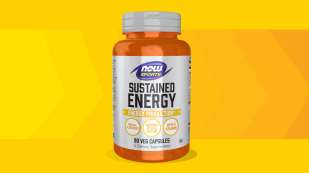Use coupon code CARDAMOM with your purchase of $40 or more for a free†
Cardamom OilCreatine Comparison

Monohydrate vs. Hydrochloride vs. Kre-Alkalyn® – Which Creatine is Best?
Creatine has become one of the most popular and well-researched supplements for athletes and fitness enthusiasts looking to enhance strength, power, and muscle growth. With different forms of creatine flooding the market, it’s easy to get lost in the marketing hype. Shop NOW® Sports Creatine products in our Mass Building category.
Let’s break it down in simple terms. The most common types include Creatine Monohydrate (Capsules, Powder), Creatine Hydrochloride, and Kre-Alkalyn®. So let's find out, which one is best for performance, absorption, and overall value?

Creatine Monohydrate: The Gold Standard
If you’ve heard of creatine, chances are you’re familiar with Creatine Monohydrate. It’s been extensively researched and is widely regarded as the most effective and cost-efficient form available.
Key Benefits of Creatine Monohydrate:
- Nearly 100% bioavailability (your body absorbs and uses it well)
- Proven to enhance strength, power, and muscle growth*
- Backed by decades of clinical research
- Most affordable form of creatine
Despite claims from other creatine variations, monohydrate remains the most scientifically validated form for increasing muscle creatine stores and improving performance.*
Solubility & Absorption: Moderate – dissolves best in warm water, but absorption in the body is still highly efficient.
Best For: Athletes, weightlifters, and anyone looking for a well-studied, effective, and affordable creatine supplement.
Creatine Hydrochloride: The “Highly Soluble” Option
Creatine Hydrochloride is marketed as a more water-soluble version of creatine that may require a lower dosage due to claims of better absorption.
Key Benefits:
- Highly soluble in water, making it easier to mix
- Requires smaller doses (claimed, but not well-supported)
- May reduce bloating or stomach discomfort for some users
However, despite its solubility, studies show no significant difference in muscle creatine retention or performance benefits compared to creatine monohydrate. Plus, it’s often more expensive. NOW® Sports does not offer a creatine hydrochloride product.
Solubility & Absorption: High – dissolves well, but higher solubility doesn’t necessarily mean better results.
Best For: Individuals who experience bloating with creatine monohydrate or prefer a more easily mixable creatine.

Kre-Alkalyn®: Buffered Creatine
Kre-Alkalyn® is a pH-buffered form of creatine that claims to enhance absorption and reduce the need for a loading phase. It’s marketed as a “no-bloat” alternative to creatine monohydrate.
Key Benefits:
- Unique pH-buffered formula that is stable throughout the GI tract
- Some reports of improved endurance and strength*
- May reduce digestive discomfort*
However, studies comparing Kre-Alkalyn® to Creatine Monohydrate show no significant differences in muscle creatine content, strength, or performance.* Some users may prefer it for potential digestive benefits.
Solubility & Absorption: Marketed as high, but research is limited.
Best For: Those looking for an alternative to monohydrate who don’t mind paying more for potential digestive benefits.
Conclusion: Stick with Monohydrate
While creatine hydrochloride and Kre-Alkalyn® make bold claims about absorption and effectiveness, the truth is creatine monohydrate remains the best option based on science. It’s the most studied, proven, and cost-effective form of creatine available.
If you want a supplement that delivers real results without the extra cost or marketing hype, go with creatine monohydrate. Your muscles (and your wallet) will thank you.
Ready to power up your workouts?
Choose NOW® Sports high-quality, tested, and trusted Creatine Monohydrate (Capsules, Powder) and start seeing the difference in your performance today!
Comparison of Different Forms of Creatine on Key Features:
|
Feature |
Creatine Monohydrate (CrM) |
Creatine Hydrochloride (Cr-HCl) |
Kre-Alkalyn® |
|
Solubility |
Moderate Better in warm water |
High, due to hydrochloride group |
Marketed as high, limited proof |
|
Bioavailability |
Nearly 100%, gold standard |
Claims higher but lacks robust proof |
Claims higher but lacks significant data |
|
Physio-chemical properties |
Crystalized 87.9% creatine by weight |
78.2% creatine by weight Acidic |
Buffered pH (>12) Reduced degradation |
|
Stability |
Stable as powder Degrades in liquids |
Stable in acidic environments |
Marketed as stable Limited data |
|
Cost efficiency |
Most affordable |
More expensive |
Mid-range |
|
Scientific support |
Extensive research Proven effectiveness |
Limited independent studies |
Few independent studies Marketing claims |
Comparison of Different Forms of Creatine on Performance and Physiological Parameters:
|
Comparison |
Factor to analysis |
Results |
References |
|
Kre-Alkalyn® vs. Creatine Monohydrate |
|
|
(1) |
|
Kre-Alkalyn® vs. Creatine Monohydrate |
|
|
(2) |
|
Creatine HCl vs. Creatine Monohydrate |
|
|
(3) |
|
Kre-Alkalyn® vs. Creatine monohydrate |
|
|
(4) |
|
Creatine HCl vs. Creatine Monohydrate |
|
|
(5) |
|
Creatine HCl vs. Creatine Monohydrate |
|
|
(6) |
References:
- Jagim AR, Oliver JM, Sanchez A, Galvan E, Fluckey J, Riechman S, et al. A buffered form of creatine does not promote greater changes in muscle creatine content, body composition, or training adaptations than creatine monohydrate. Journal of the International Society of Sports Nutrition. 2012;9(1):43.
- Golini J. Efficacy and Examination of an Alkaline Buffered Commercial Creatine Supplement-Kre-Alkalyn®, in Athletes. Clin Res. 2015;1(4):87-90.
- Tayebi M, Arazi H. Is creatine hydrochloride better than creatine monohydrate for the improvement of physical performance and hormonal changes in young trained men? Science & Sports. 2020;35(5):e135-e41.
- Ar J, Jm O, A S, E G, J F, S R, et al. Kre-Alkalyn® supplementation does not promote greater changes in muscle creatine content, body composition, or training adaptations in comparison to creatine monohydrate. J Int Soc Sports Nutr. 2012;9(Suppl 1):11.
- Eghbali E, Riahy S, Arazi H. Creatine hydrochloride or creatine monohydrate plus resistance training: which combination has a greater effect on oxidative stress, muscle damage, performance, and body composition in soldiers? Sport Sciences for Health. 2024.
- Eghbali E, Arazi H, Suzuki K. Supplementing With Which Form of Creatine (Hydrochloride or Monohydrate) Alongside Resistance Training Can Have More Impacts on Anabolic/Catabolic Hormones, Strength and Body Composition? Physiol Res. 2024;73(5):739-53.
*These statements have not been evaluated by the Food and Drug Administration. These products are not intended to diagnose, treat, cure or prevent any disease.











